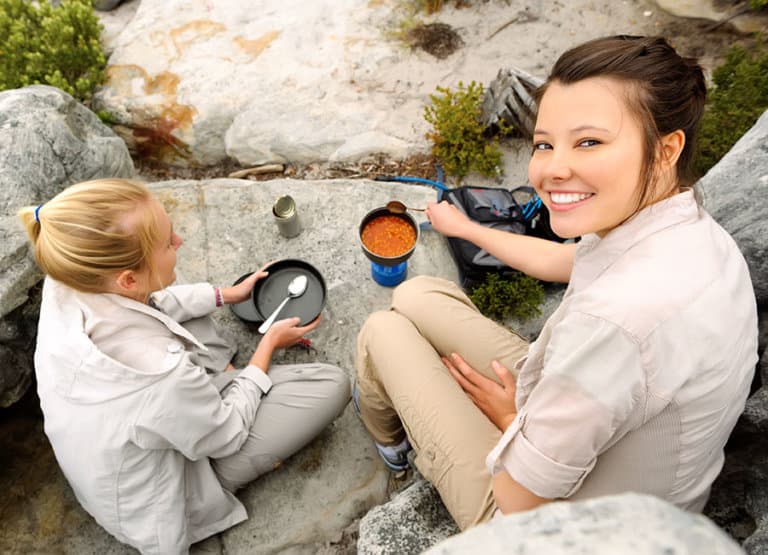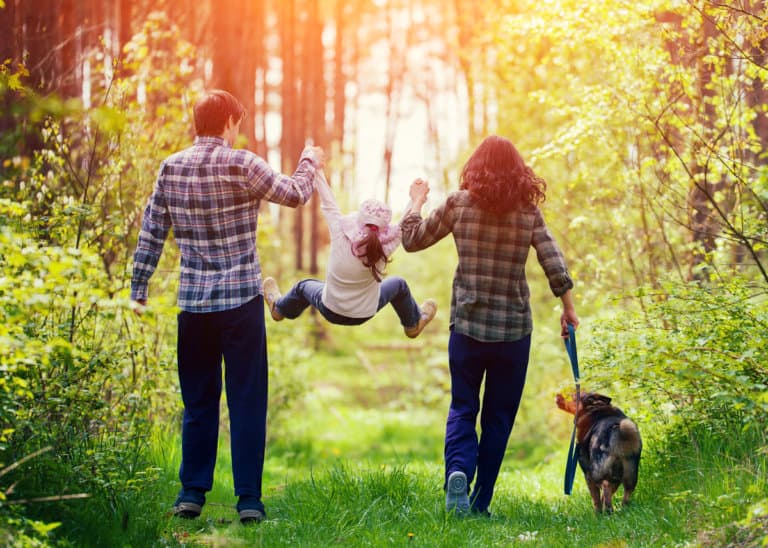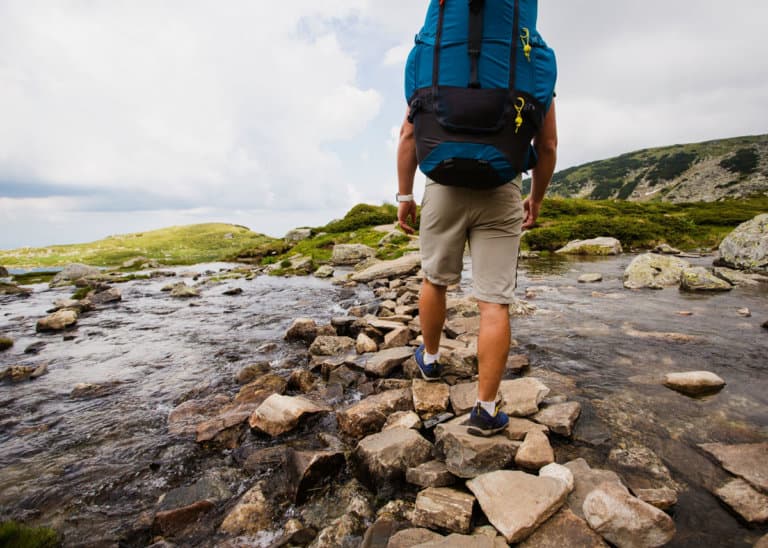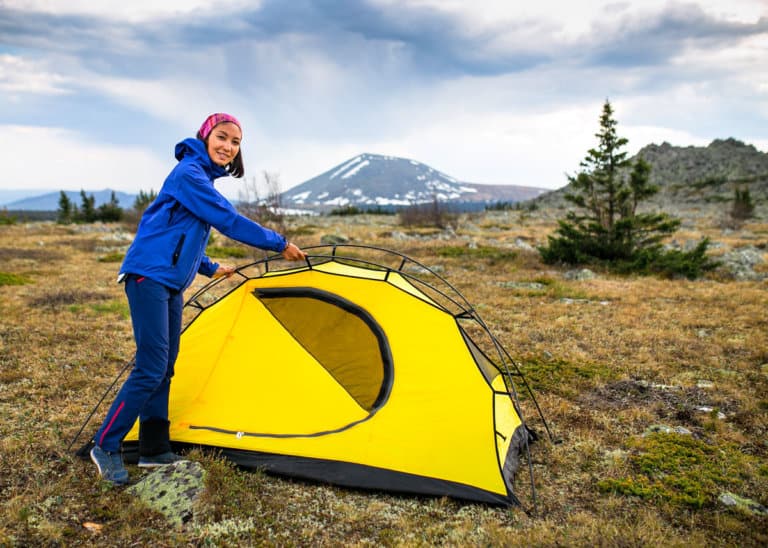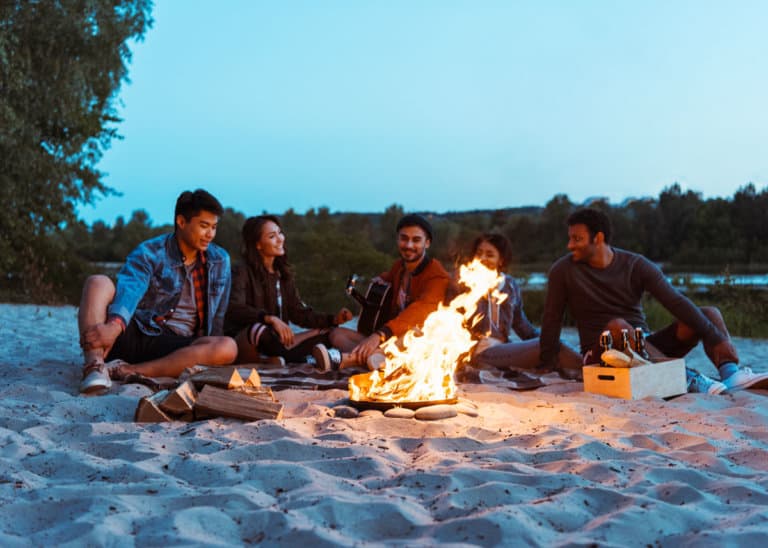What is Bushcraft? 13 Skills/Tools for Bushcraft Camping Guide
Bushcraft and bushcraft camping is gaining popularity. It is similar to camping but still distinct. Here’s your beginner’s guide to bushcraft camping. You’ll learn about the basics, including the tools and skills required to get started.
What is Bushcraft?
Bushcraft is the craft of living in the bush. Bush refers to the remote and wild country, not a shrub.
Bushcraft encompasses all the skills you need to survive in the wild. It includes the knowledge required to provide the basic needs for living: food, water, shelter, and fire. People also focus on knot-tying, wood carving, medicine, and navigation.

It may sound the same as survival skills, but they’re a bit different. You’d use survival skills after a natural disaster or manmade disaster. People participate in bushcraft because they enjoy trying to live in an isolated location.
What is Bushcraft Camping?
Bushcraft camping is like regular camping but in ultra-hard mode. You intentionally go to a remote location and try to spend time there with few supplies.
You can choose where to go and which supplies to take on your camping trips. That gives you some control over the level of difficulty. You can’t predict what happens in nature, but you can make a more enjoyable experience for yourself.
Remember that bushcraft camping is a skill, not an innate ability. That means you can practice and get better at it. There’s also more than one way to be “good” at it.
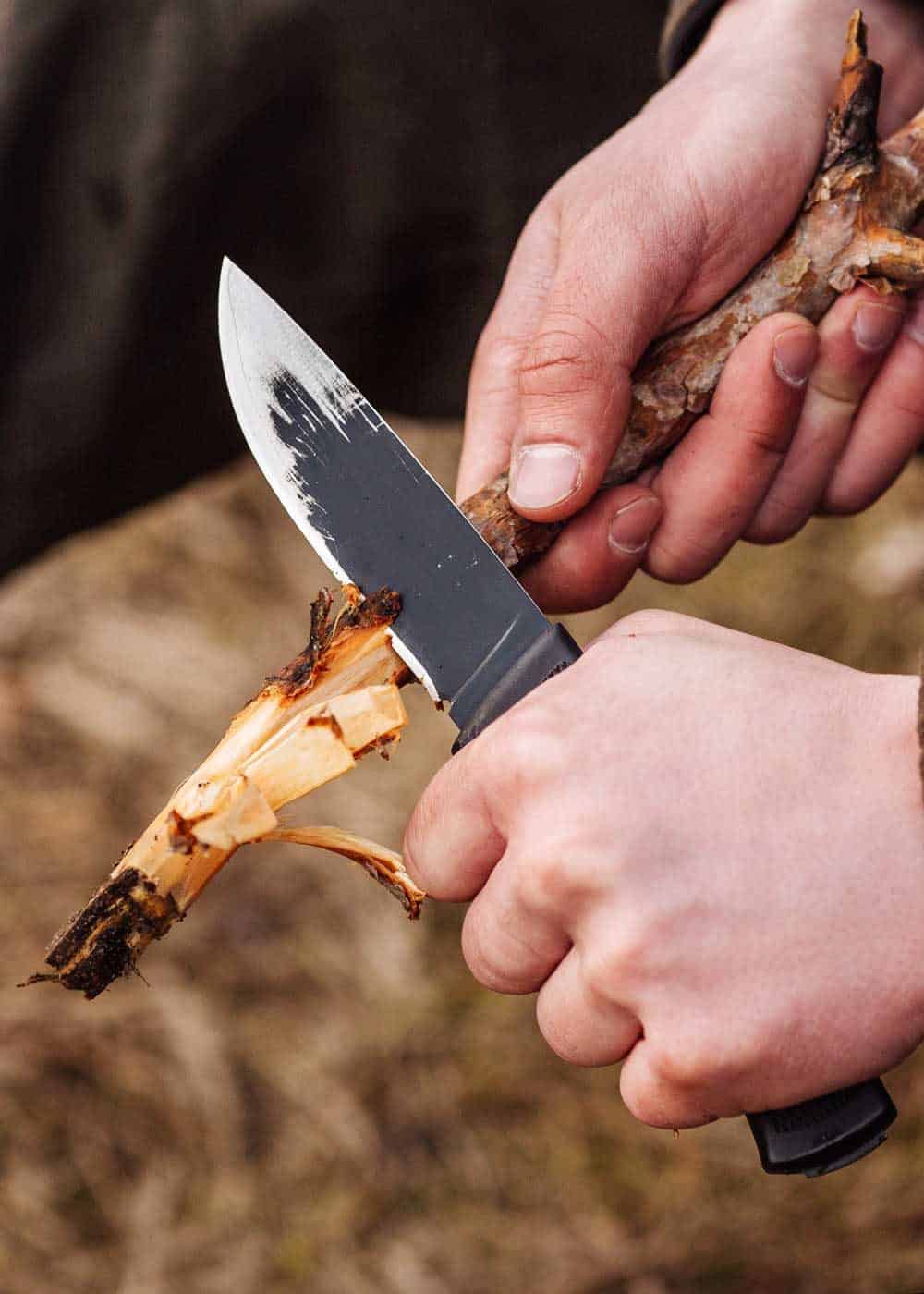
6 Bushcraft Tools
Which tools you take are up to you. It depends on how difficult you want to make it for yourself. Once you feel comfortable bushcraft camping with all these, you can challenge yourself by taking less.
You can also work with different tools to expand your creative thinking. It’s interesting to see what people can come up with in a tight spot.
Here are the most valuable tools you can take with you to go bushcraft camping:
1. Knife
With some basic skills, your knife will be the ultimate survival tool. Some bushcrafters say it’s the only tool you need.
Having a knife allows you to create other tools and hunt. A little bit of a blade goes a long way in the wild.
2. Ax or Saw
These may not seem much different from a knife, but they are. If you plan to spend more than a few days in the woods, you’ll want an ax.
It helps with shelter building, walking through thick woods, and cutting firewood.
A saw is just as versatile as an ax, and it’s lighter too. Not bringing an ax could be a way to challenge yourself.

3. Firestarter
Firestarters are anything you can start a fires with; including flint and steel, lighters, or matches.
There are more primitive ways to start a fire, like rubbing two sticks together. But using a firestarter will save you tons of time and effort.
Here’s how to start a fire without matches.
4. Rope/Paracord
You’ll be amazed by how much you can do with a good rope or paracord. There’s fishing, binding shelters, raft building, sewing, and more.
While you can make some cord, you’ll probably want to throw a 50ft section of cord or rope in your pack.
5. Pot
This is less essential than the previously listed tools but can still be a game changer.
You can potentially make do in the wilderness without a canteen or pot, but there’s no guarantee. But you’ll need to be able to carry water with you and cook the food you find.
6. Compass
A compass is also slightly less essential since you can find other ways to navigate in a pinch. It’s nice to have one, especially if you don’t want to bother learning navigational skills.
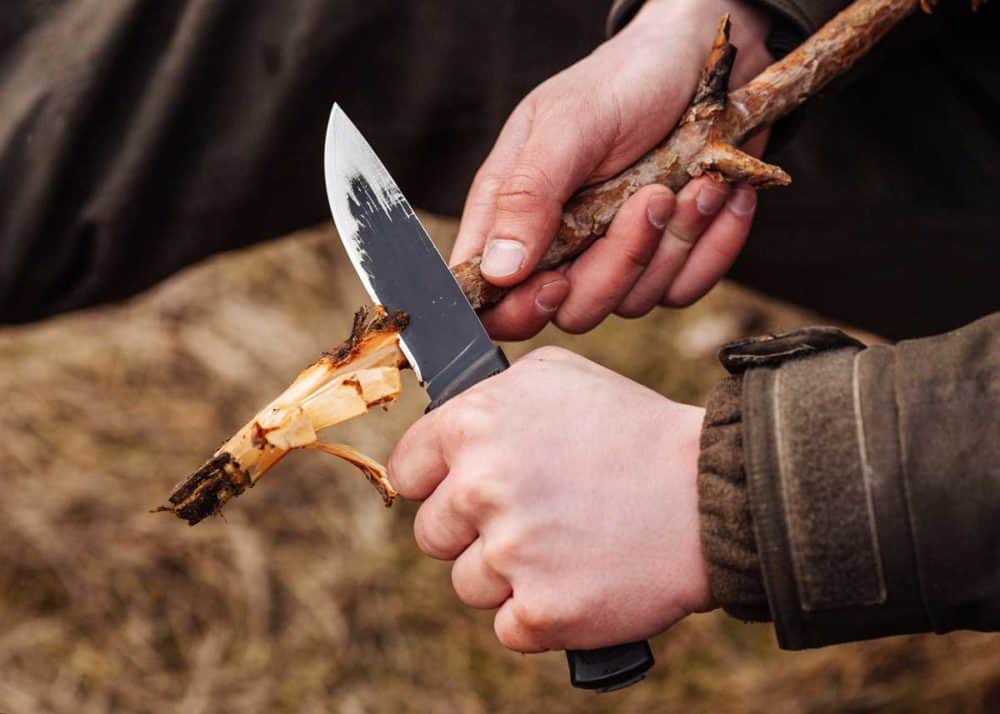
7 Bushcraft Skills
There’s no definitive answer for which skills are involved because there’s more than one way to survive. There are basic skills that everyone should know, but after those, you’ll find there’s a lot of variety.
The first four skills are essential to know before going bushcraft camping. You’ll find the other two to be extremely helpful as well.
1. Water Sourcing
Being able to find and purify water is the most important skill involved. To purify water, the most obvious method is boiling. Here’s how long to boil drinking water.
If boiling isn’t an option, here are five methods to purify river water.
The average person can only go three days without water, and that’s in mild conditions. You start to feel dehydrated after only spending one hour in extreme heat.
2. Fire Making
You need a fire to stay warm, cook food, purify water, and ward off predators. If you were in an extreme survival situation and needed someone to rescue you, a fire is also a great way to signal.
For help, check out our guide to starting a fire: 6 Easy Ways to Build the Perfect Fire
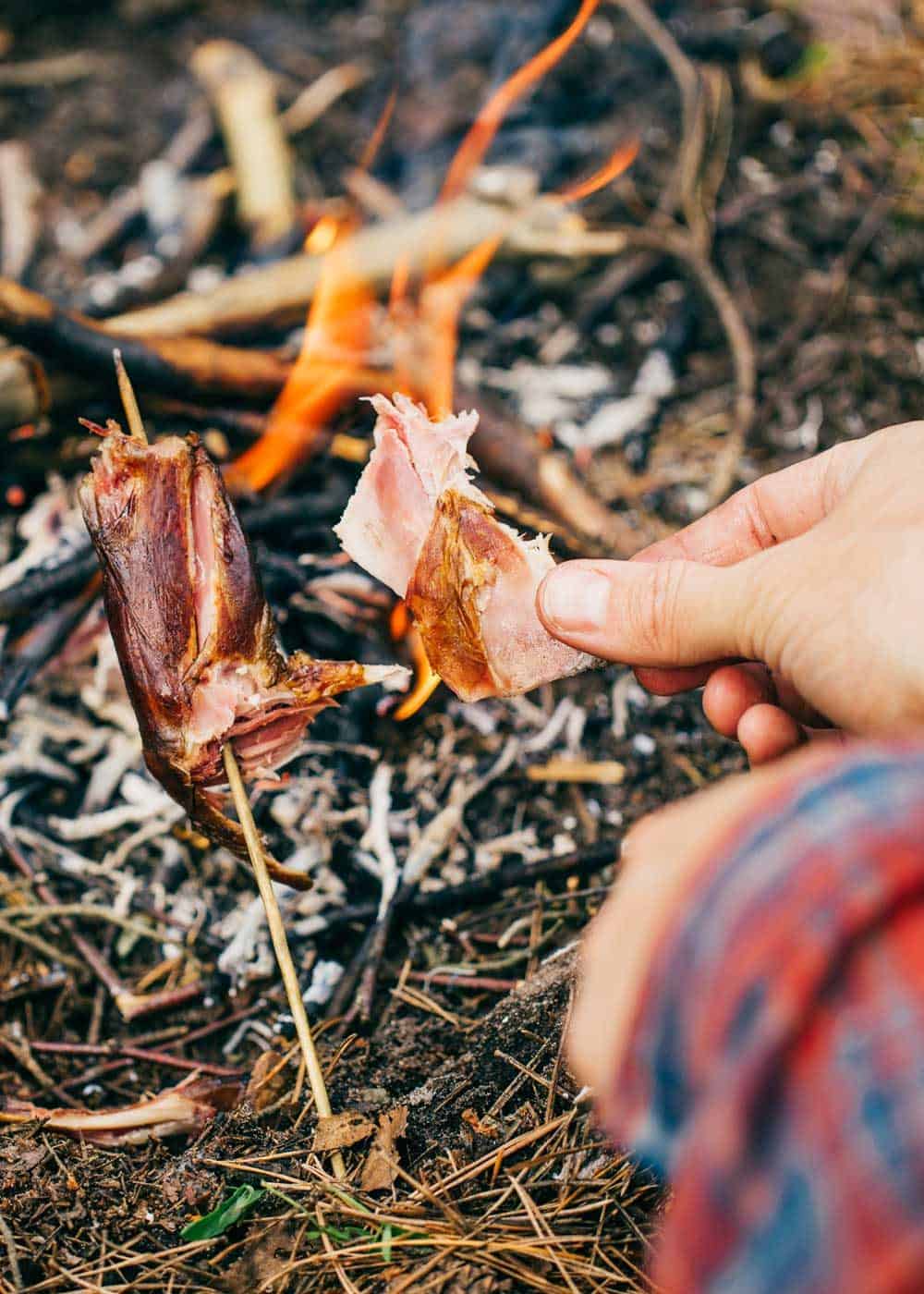
3. Food Acquisition
You can find food through hunting, trapping, fishing, or foraging. You may prefer one method, but knowing various methods is useful.
You can’t predict what situation you may get into. There may not always be water to fish in or animals to hunt.
Here are five methods to cook your food on a campfire.
Here are ten simple bushcraft skills. They include building a live trap, wooden whistle, fire-starting, and knot-tying.
4. Shelter Building
Being able to build a shelter is key to bushcraft camping. The idea behind bushcraft camping is to use the resources available to survive. That means you don’t take a tent with you.
At most, you can take a tarp. There are many different ways to build shelters.
5. Navigation
Navigation is a valuable skill, especially if you don’t want to carry a compass. Learning to use a compass and read a map are navigational skills. There are cool ways to navigate, too, like reading the stars.
Here’s how to use a compass without a map.
6. First Aid
Knowing first aid isn’t quite as important as the first four skills, but it’s still extremely important.
You don’t have to become a certified medic to start bushcraft camping, but knowing basic first aid could save your skin.
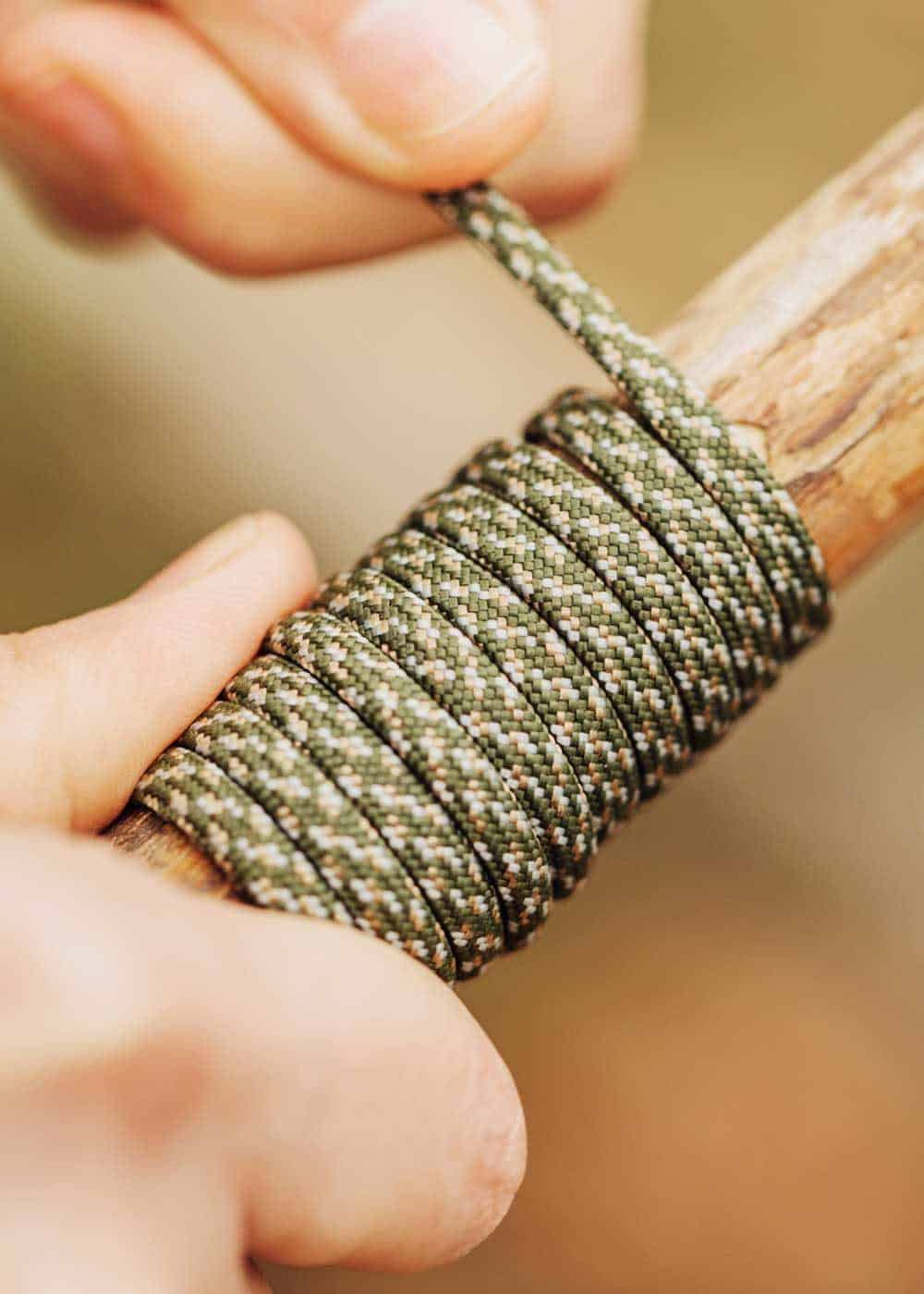
7. Knot Tying Skills
A basic knowledge of how to tie knots is important for a successful trip.
Here are ten bushcraft knots with great visual explanations. They include slip knots, slip knots with jam, Canadian slip knots, and fisherman knots.
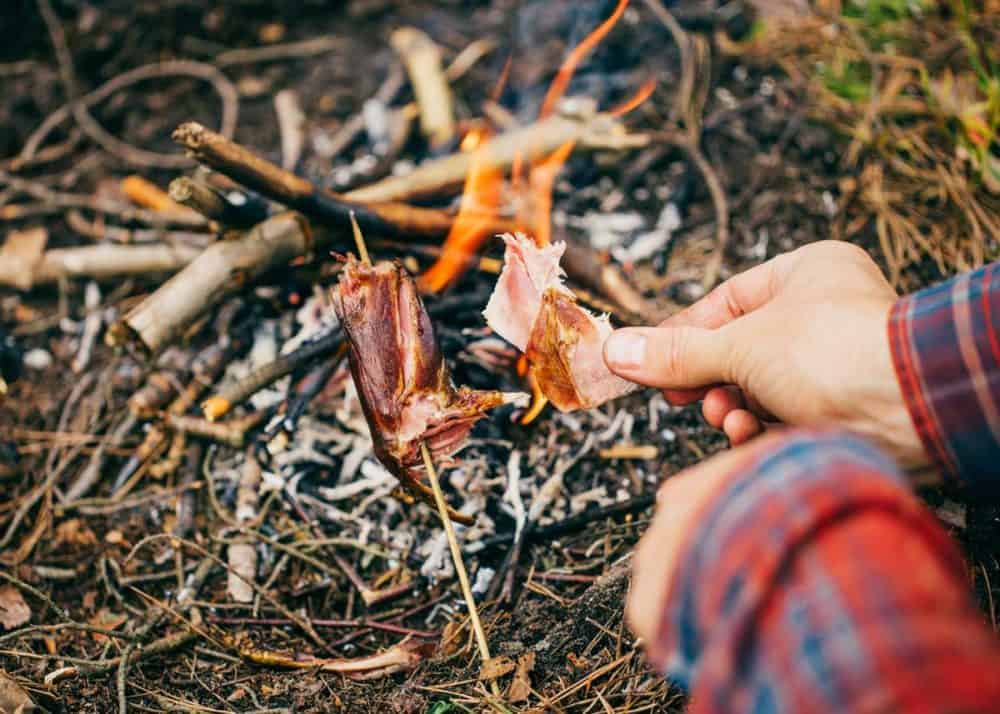
Your Turn
This beginner’s guide to bushcraft camping has given you an overview of what it is. You can use this as a starting point to build up your bushcraft repertoire. You can easily turn it into a lifelong hobby if you enjoy it as many do.
Have a resource or experience to share? Please join me below!


